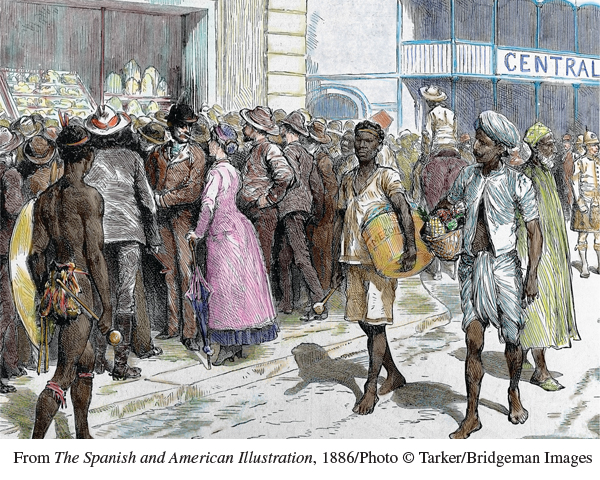A History of Western Society: Printed Page 792
A History of Western Society, Value Edition: Printed Page 760
A History of Western Society, Concise Edition: Printed Page 791
Introduction for Chapter 24
24
The West and the World
1815–1914
While industrialization and nationalism were transforming urban and rural life throughout Europe, western Europeans were reshaping the world. At the peak of its power and pride, the West entered the third and most dynamic phase of the aggressive expansion that had begun with the Crusades and continued with the rise of seaborne colonial empires. At the same time, millions of Europeans picked up stakes and emigrated abroad, primarily to North and South America but also to Australia, North and South Africa, and Asiatic Russia. An ever-
The most spectacular manifestations of Western expansion came in the late nineteenth century when the leading European nations established or enlarged their far-

CHAPTER PREVIEW
What were some of the global consequences of European industrialization between 1815 and 1914?
How was massive migration an integral part of Western expansion?
How did Western imperialism change after 1880?
What was the general pattern of non-
Chronology
| 1805–1848 | Muhammad Ali modernizes Egypt |
| 1839–1842 | First Opium War; Treaty of Nanking |
| 1853 | Perry “opens” Japan for trade |
| 1856–1860 | Second Opium War |
| 1857–1858 | Britain crushes Great Rebellion in India |
| 1863–1879 | Reign of Ismail in Egypt |
| 1867 | Meiji Restoration in Japan |
| 1869 | Suez Canal opens |
| 1880–1900 | Most of Africa falls under European rule |
| 1884–1885 | Berlin Conference |
| 1885 | Russian expansion reaches borders of Afghanistan |
| 1898 | United States takes over Philippines; hundred days of reform in China; Battle of Omdurman |
| 1899 | Kipling writes “The White Man’s Burden” |
| 1899–1902 | South African War |
| 1902 | Conrad publishes Heart of Darkness; Hobson publishes Imperialism |
| 1912 | Western- |
| 1914 | Panama Canal opens |